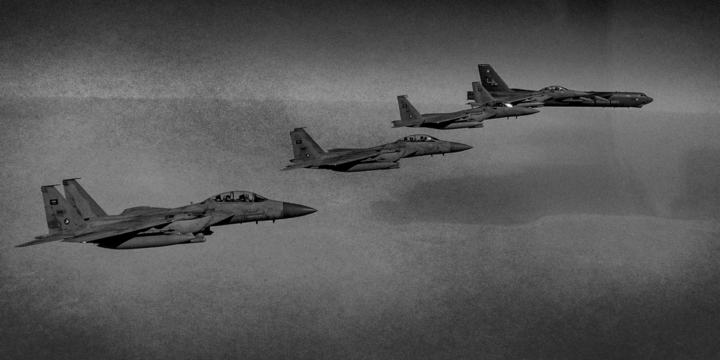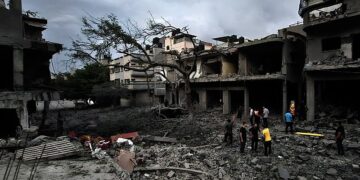September 26, 2024
The Netanyahu doctrine will fail in Lebanon
By Rajan Menon and Daniel DePetris

Give someone a hammer, and they will find that everything they encounter needs pounding. The various versions of this adage remain apposite for understanding many human decisions, and not least Israeli prime minister Benjamin Netanyahu’s in Gaza and Lebanon. His conviction that he can bend Hamas and Hezbollah to his will by relying, repeatedly, on the Israel Defence Force’s (IDF) huge military advantage over both adversaries remains unshaken.
Yet as the war in Gaza nears the one-year mark, Hamas has yet to accept Netanyahu’s conditions for a ceasefire – which include maintaining a permanent Israeli presence along the Philadelphi Corridor, south of Gaza’s border with Egypt, and checkpoints along the Netzarim Corridor, which bisects the territory. No matter how much military power Netanyahu uses, Hamas continues to steadfastly reject these terms. The prime minister’s larger goal, destroying Hamas entirely, remains even more outlandish, as even senior Israeli military and intelligence officials admit. Still, he continues wielding the hammer. What began as retaliation against Hamas for its brutal 7 October assault on Israel has turned into the collective punishment of all Gazans, with more than 41,000 killed. That has left Israel isolated internationally, as even Israeli commentators acknowledge.
No matter. It has been reported that the IDF chief of staff has ordered preparations for a ground invasion of southern Lebanon. Netanyahu seems determined to bet on Israel’s military prowess once again, calculating that this will bring the Lebanese militia and political party to its knees. True, the IDF remains the Middle East’s most lethal, technologically advanced army, and Israel’s fabled intelligence agencies have demonstrated their skills repeatedly, most recently by seemingly turning Hezbollah’s pagers and radios into explosive devices. Plus, Israel retains what wonks of war call “escalation dominance”: it can pound southern Lebanon with far greater force than Hezbollah can inflict on northern Israel. Consequently, the IDF is bloodying Hezbollah’s nose, killing off its leadership, and striking so many Hezbollah military targets daily that it’s difficult keep track of the damage.
However, the IDF’s awesome firepower and Mossad’s James Bond-like subterfuge is deceivingly seductive. Israel is hobbled by the same fundamental problem in Lebanon as it has been in Gaza: a military-centric strategy that is unlikely to produce anything other than short-term gains. The IDF’s relentless airstrikes against Hezbollah, which on Monday alone killed more than 500 people – 50 of them children, according to Lebanon’s health minister, though the proportion of the death toll accounted for by Hezbollah fighters remains unclear – may force Hezbollah to suspend missile and drone attacks for a time. But they won’t achieve lasting calm, let alone destroy Hezbollah as an organisation. The parallel to Gaza, while not precise, is clear enough.
Authors

Rajan
Menon
Non-Resident Senior Fellow

Daniel
DePetris
Fellow
Events on Israel






